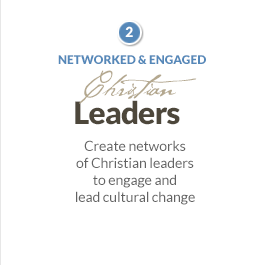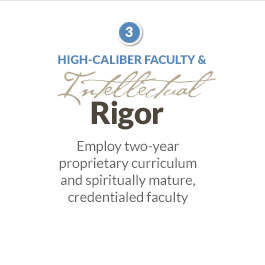Given the heightened attention the subject of justice has received in the church and wider society in the last number of years, Christian Union spent months examining the Scriptures, consulting with many inside and outside the organization and seeking the Lord to put into words the ministry’s perspective on this important issue. You may also download this Justice Statement in pdf form.
Affirming Humanity and Rejecting the Sin of Partiality
- We reject racism as totally inconsistent with Christianity and as the sin of partiality, which God detests. God shows no partiality towards people based on their outward appearance and neither should we. He deals with all people according to their conduct. (Deuteronomy 10:17; Acts 10:34; Romans 2:11)
- We affirm that personal acts of discrimination based on race1 or ethnicity, as well as systems or institutions that discriminate based on race or ethnicity are to be identified, renounced, and reformed. (Deuteronomy 1:17; James 2:1-9)
- We affirm that every person is created in the image of God and inherently worthy of respect. (James 2:1-9)
- We treat people of every ethnic background with kindness, acceptance, life, grace, forgiveness, and generosity. (Romans 14:8-10)
- We refuse to give place to divisive social and broadcast media that separates people of different races and we refuse to believe the worst about people of different ethnicities. (1 Corinthians 13:4-7)
- We are careful to avoid and combat the unforgiving culture of rash and unjustifiable condemnation of others as racist in either a public or private setting. Additionally, we affirm that no person is inherently racist or otherwise sinful just for being a member of a race. (Exodus 20:16; 1 Peter 2:1)
- We overlook offenses, and if it’s needed to have a private word with someone, we do it with love and grace. We seek unity and healing, not division. When we fail at any one of these godly aspirations, we repent and receive God’s forgiveness and cleansing through Christ. (Colossians 3:12-17; 1 John 1:9)
- We affirm that all nations, ethnicities, and people groups are established by God and redeemed through faith in Christ to persist into eternity. (Revelation 5:7)
- We reject the tendency to problematize every circumstance so as to seek out and promote victim/oppressor narratives. In addition to denouncing true victimization and oppression as stated above, we further believe that Christ has given us the power of God’s Spirit and His truth so that, despite human weakness and sin, we can bless, help, heal, overcome, reconcile, and redeem in His name. (Romans 8:18-39)
- As Christians, our primary identity is in Christ, even while recognizing that the beautiful racial and ethnic distinctions will continue in Heaven. The New Testament subjugates all identifiers to the Lordship of Jesus. (Galatians 3:28)
Affirming Christian Unity and Rejecting Division - We affirm that the unity of the Body of Christ is founded on repentance and faith in Jesus Christ. (1 Corinthians 1:10-13)
- Christian unity entails God’s intentional diversity of gifts and callings. These differences should not lead to disunity or rivalry, but unity in Christ should prevail as we appreciate the Spirit’s work in other Christians while maintaining our own unique work from the Spirit. (1 Corinthians 12:4-7)
- We affirm the need for each Christian to preserve Christian unity through love, forbearance, forgiveness, wisdom, faith, hope, joy, peace-making, prayer, humility, kindness, gentleness, and self-control. (Ephesians 4:1-6; Philippians 2:1-11)
- Christians have the right to follow their own consciences where it does not contradict the Scriptures, and all believers must welcome one another in Christ and refuse to allow secondary convictions to cause division in the church. As Christians, we do not have the right to look down on another Christian or disassociate from another Christian because of differences of opinion on secondary issues. (Romans 14:11-13)
- We affirm the need for mature discourse on controversial topics. We recognize that sincere, devout Christians can hold legitimately different views on important societal issues and we do not take offense or react emotionally when hearing differing views. (Romans 14:1-23; James 1:19-20; 3:13-18)
- We affirm Christian Union’s value of intellectual orientation. When disparities between populations occur or when anecdotes of mistreatment between races are cited, we investigate all sides of an issue to discover the truth. (Proverbs 18:17; 1 Corinthians 14:20)
Affirming Christian Union’s Calling and Rejecting Diversions from Our Mission - We reaffirm that the sole basis for Christian Union’s ministry is the Bible and not a social theory or philosophy. (2 Timothy 3:16; 2 Peter 3:15-16)
- We reaffirm Christian Union’s specific calling from God to develop and connect transformative Christian leaders and to promote national revival and reformation.
- God raises up various ministries for various purposes, and CU is focused on its particular mission of Christian leadership development. Each Christian agency cannot do all things and solve every problem. (Galatians 2:7-9; 2 Corinthians 10:13-16)
- Christian Union aspires to reflect diversity in personnel, levels of leadership, collateral, student involvement, conferences, programming and everywhere else. Maintaining diversity is a priority at the various levels of the organization. Although the ministry highly values diversity, it does not force diversity with non-qualified candidates, but rather works hard to identify and recruit qualified candidates from all ethnic backgrounds.
. . . .
1. The Bible identifies groups of people by their faith, sex, age, family, clan, tribe, language, and nationality, but never by skin color. The primary New Testament word used to categorize people groups is ethnos, which is translated in English as “nation.” However, “race” is used in this document according to modern common terminology rather than out of concern for language that is most consistent with the Scriptures.
Learn More About Christian Union
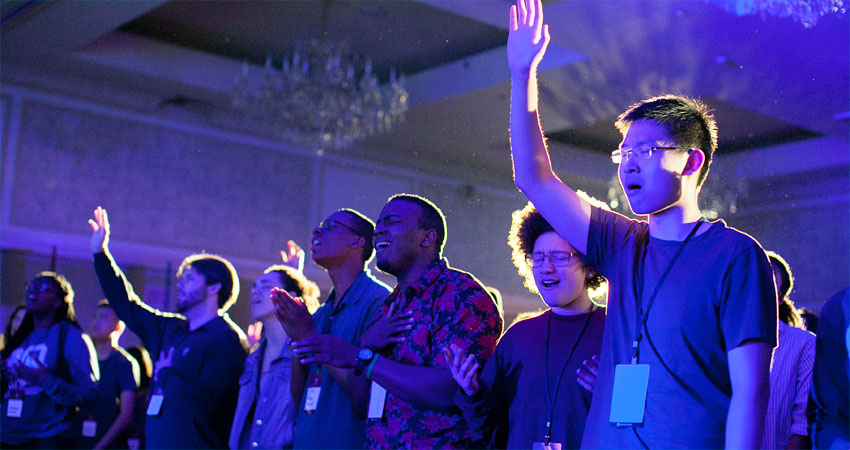
We believe in an almighty, holy, and righteous God, who, in His divine mercy and love, provided the complete atonement for sin through Jesus Christ. What an awesome God! We are passionate about pursuing Christ and His kingdom. It is the heart of this ministry effort. We give Him all the glory, for He is worthy.
We believe that the Gospel of Jesus Christ has the power to transform the lives of men and women who lead American society; and every person, from the mightiest to “the least of these,” are blessed and more apt to flourish as human beings when leaders exhibit and promote biblically shaped, Kingdom-of-God values, here and now.
We believe that, while one person can bring about significant change, systemic change occurs when leaders are connected to one another, coordinating efforts, and challenging and inspiring each other to greater faithfulness and impact.
We believe that the time to develop Christian leaders to transform culture is now. Will you help by praying or by becoming a ministry partner and donating?
Imagine the United States transformed by the leadership and values of Christians of wholehearted devotion to the Lord.
Vision
Christian Union seeks a spiritually vibrant nation marked by Christian values permeating every corner of society.Mission
Christian Union develops and connects transformative Christian leaders.Strategy
Christian Union’s two main emphases on select universities and professionals in key cities reflect our concern to reach people groups that exert disproportionate cultural influence in the United States.
Outcome
If US society was transformed by the leadership and values of Christians of wholehearted devotion to the Lord we might expect to see some of the following implications: - If large numbers of business executives valued Christian ideals above all else, it would mean the spread of ethical business practices, concern that workers be treated fairly, and integrity in leadership.
- In the field of education, if large numbers of university presidents, faculty, and administrators were committed to Jesus Christ, careers, internal politics, and ideology would take a back seat to the education of our children.
- If the US government contained high numbers of developed Christian leaders, we would expect laws and the execution of laws in our country to more fully reflect a Christian worldview.
- If large numbers of top media executives reflected Christian values, we would expect more programs valuing marriage, parenthood, generosity, respect, courage, self-sacrifice, and compassion.
- There is a global impact to consider as well in the thousands of foreign students who study at these key universities. Consider the potential impact if a future president of Pakistan, China, or Russia were reached for Christ and trained to be a godly leader for their home country.
At present, the nation's most influential universities export spiritual darkness into our culture through secularized leadership.
It will take prayer, effort and financial resources to reach these future leaders for Christ. Please prayerfully consider how you might partner with Christian Union to make a difference.
God
God is Triune—Father, Son, and Holy Spirit, each an uncreated person, one in essence, equal in power and glory.
The Scriptures
The Bible alone, and the Bible in its entirety, is the Word of God written and is therefore wholly truthful in the original manuscripts and authoritative for faith and practice.
Creation
God created all things out of nothing, and He has created all people in His image, equal in worth. However, because of sin, all people are alienated from God and one another and justly deserve God’s eternal judgment.
Jesus Christ
Jesus Christ, the only and eternal Son of God and His perfect image, took on human flesh to save us, in order that we might be restored in relationship with God and one another, rightly worship, and love God and love our neighbor as ourselves, and be freed from the power of sin and the just judgment of God.
Jesus was conceived by the Holy Spirit and born of the Virgin Mary, fully God and fully man. He lived a perfect and sinless life, loving others, teaching truth from God, and working miracles. He was crucified for us, died, and was buried. On the third day He rose from the dead with a glorified body. He ascended into heaven, and he now rules as Lord at the right hand of God the Father, where He intercedes for His people.
The Gospel
Because of the love of God and for the glory of God, Jesus died in the place of sinners in order to secure our salvation. All who, by the power of the Holy Spirit, repent of sin, believe in Jesus Christ alone for salvation, and confess Him as Lord receive God’s free gift of restored relationship with Him and eternal life.
Our good works do not earn salvation, but by God’s grace through the Holy Spirit good works always accompany salvation and make it manifest, for the glory of God and Christ. God gives to all believers the Holy Spirit who indwells, sanctifies, instructs, gifts, and empowers believers for Christ-like living and service, the unity of faith, and knowledge of the Son of God, through which we grow in the maturity and fullness of the image of Christ in us. The Spirit Himself is the down payment of our promised inheritance in Christ.
Jesus has commissioned His church to bring the gospel to all peoples, to make disciples of Him, and to celebrate baptism and communion until He returns. Jesus is coming back to earth personally, bodily, and gloriously to consummate His righteous rule. All who trust in Him will enjoy eternal, joyful fellowship with God and one another in resurrected and glorified bodies in a new heavens and new earth.
See also our Statement of Ethics
A Process of Drawing Close to God
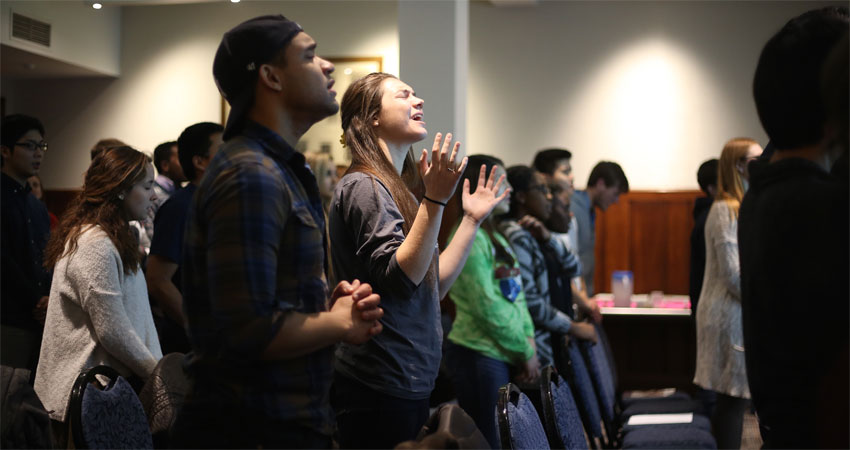
Christian Union emphasizes a mindset and behaviors considered normative by Christians for centuries which have fallen out of practice in the US, save during periods of revival. These are characteristic of the international church, such as in Uganda, China and Korea, and include frequent prayer; large intake of Scripture; repentance; humility through fasting; perseverance; promptly obeying the Spirit; and extended times of gathering with fellow believers. Something as essential as seeking God entails attention, time, and energy.
Learn more about seven characteristics of a Seeking God Lifestyle.
The Christian Union Difference
Four distinctives differentiate Christian Union. Each is a theme that runs through Christian Union's work in key cities and on strategic university campuses:
01 || A Lifestyle Marked by Seeking God
Christian Union promotes biblical Christianity's emphasis on frequent, fervent prayer; massive intake of Scripture; repentance; humility through fasting; perseverance; promptly obeying the Spirit; and extended times of gathering with believers.Learn more >
02 || Networked & Engaged Christian Leaders
Christian leaders must engage culture in order to transform it, and Christians of influence must be well networked in order to maximize their godly impact on society.Learn more >
03 || High-Caliber Faculty & Intellectual Rigor
This strategic focus requires curriculum and faculty suitable for men and women of exceptional intellectual caliber; proprietary Bible course and leadership training curriculum are combined with effective mentoring by ministry faculty of mature faith and advanced theological training.Learn more >
04 || Disciplined Approach & Organizational Excellence
Christian Union seeks to honor the Lord, expand the ministry, and serve donors' intentions by maintaining a disciplined ministry model and a culture of strict accountability evidenced by detailed metrics, extensive evaluations, and continuous improvements to maximize ministry impact.Learn more >
Training Christian Leaders to Engage Culture
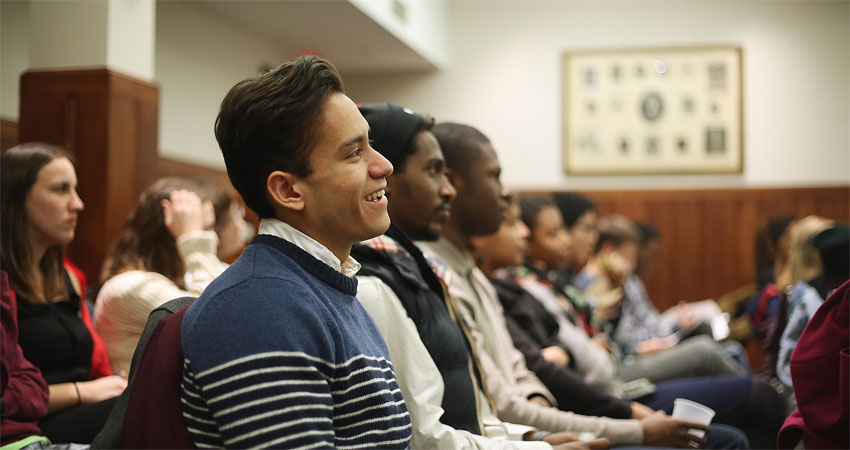
We need Christians to assume positions of leadership across many vocations and to take the part of (and continue to take up) issues of justice. Christians who are isolated in a "holy huddle" either socially or intellectually will not change culture.
"What we want is not more little books about Christianity, but more little books by Christians on other subjects—with their Christianity latent...It is not the books written in direct defense of Materialism that make the modern man a materialist; it is the materialistic assumptions...he would be troubled if, whenever he wanted a cheap popular introduction to some science, the best work on the market was always by a Christian." —C.S. Lewis, "Christian Apologetics," God in the Dock
There are numerous examples of Christian leaders whose lives inspire Christian Union to develop new generations of Christian leaders. C.S. Lewis himself is one of them.
The following five examples illustrate the range of social and cultural impact that Christians have when they submit their influence to God-honoring ends:
Five Examples of Inspiring Christian Leaders
C.S. Lewis (1898 – 1963)The Oxford Scholar, novelist, poet, academic, medievalist, literary critic, essayist, and Christian apologist wrote such classics as the Narnia Chronicles (The Lion, The Witch and the Wardrobe etc.), Mere Christianity, The Great Divorce, Surprised by Joy, and of course many other titles. He bridged academia and mass culture with popular works of fiction and non fiction, and compelling presentations of Christian worldview. We need many Christian to take the lead in academia, journalism, as essayists, cultural commentators, story tellers, filmmakers, and in many other fields, to impact our culture.
Dr. Ida Scudder (1870 –1960)
A third-generation American medical missionary in India, she was a graduate of Cornell Medical College, New York City, 1899; the first class at that school to accept women medical students. Ida had resolved not to become a medical missionary, but seeing women die in childbirth needlessly convinced her God wanted her to help as a physician. In 1918, she started one of Asia's foremost teaching hospitals, the Christian Medical College & Hospital, Vellore, India. She dedicated her skills to God. We need Christians in the medical fields, sciences, economy, and more, to do likewise.
George Gallup Jr. (1930 – 2011)
An American, George Gallup Jr. graduated with a degree in religion from Princeton, then worked at a ministry on Galveston Island in Texas. He considered becoming an Episcopal priest until he was drawn into work for his father's polling firm, where he worked from mid 1950s until 2004. He expanded the firm's surveys into religion, becoming one of the first pollsters to ask questions about organized religion and religious teachings and practice. Under Gallup Jr. the polling firm became a barometer of Americans' views on religion and politics. Late in life, he lamented that politicians had come to follow polls so closely; still he felt polling to be good for democracy. "It's removed power out of the hands of special interest groups...It's given people who wouldn't normally have a voice a voice." We need Christians to lead in the social sciences, media, and more, to bring Christian values and perspective to bear on the pressing issues of our time.
Martin Luther King Jr. (1929 – 1968)
A Baptist minister, King is best known for his role in the advancement of civil rights using nonviolent civil disobedience. He led the 1955 Montgomery Bus Boycott and helped found the Southern Christian Leadership Conference. His efforts led to the 1963 March on Washington, where King delivered his "I Have a Dream" speech. Remarkably, King balanced the tension between confrontation and nonviolence, and in 1964 he received the Nobel Peace Prize. Leading up to his death, he expanded his focus to include poverty and the Vietnam War. Just days after his assassination, Congress passed the Civil Rights Act of 1968. We need Christians to lead on behalf of the oppressed, whether that means working to pass just laws, living and serving among those who suffer, or advocating for "the least of these."
Sandy McDonnell (1922 – 2012)
This engineer, businessman and philanthropist was the former chairman and chief executive officer of McDonnell Douglas Corporation, he also served as national president of the Boy Scouts of America and as chairman of Character Education Partnership. He became a Christian later in life and used his influence to institute a code of business ethics, one of the first of its kind. Following his retirement, he worked energetically to advance character training in public schools. We need many business leaders to implement Christian values in the marketplace and society.
Men and women poised to lead in their fields must be reached with the Gospel and equipped to serve effectively for God-honoring ends.
Networked Christian Leaders
Movements may be known by one leader, but it takes a network of high-level influencers to shift culture.One of the most successful examples of a modern network of Christians is the extraodinary group of believers who pooled their collective influence, resources, physical and spiritual energies together to form a group dubbed the Clapham Circle. In the 19th century, when a member of the British parliament, William Wilberforce, came to faith and dedicated his influence to abolishing slavery, these peers became a network - in fact, a community - of spiritual and practical encouragement. They leveraged their influence for God.
Movements may be known by one leader, but it takes a network of high-level influencers to shift culture.
After decades of toil, God used Wilberforce and this influential network of Christian believers working with him, to not only end slavery in the British empire, but also to usher in an era that honored virtue in a society that had fallen into deep darkness.
Together, the Clapham Circle—a small group that included writers, philanthropists, scholars, politicians, clergy and businessmen who were driven by their faith—literally changed the world. Their far-reaching impact included dramatic success in prison reform, education, integrity in politics, mission, medicine and cultural change.
Christian Union works to network together leaders of wholehearted devotion, who will have a greater impact together than they could ever have leading alone.
Please prayerfully consider how you can help.
Honoring the Lord with Excellence
The nature and significance of Christian Union’s calling compels a culture of accountability. While our primary output or product as an organization is changed lives, we hold ourselves accountable for our diligence and progress.Metrics are a means to the end of ensuring that accountability which, in turn, flows from the desire to honor God with our best efforts. We aspire to be as organizationally robust as some of the best well-run for-profit firms. From score-carding mechanisms, to assessing year-over-year results, to post-event analyses, we seek to continuously improve our performance and effectiveness.
Christian Union is a 501(c)(3) non-profit corporation and donations are tax-deductible as allowed by law. Christian Union is audited annually by an external firm. You can view these audited financial statements. The ministry highly values the contributions of financial partners and carefully manages every gift. We will respond to financial partners promptly with questions and requests for additional information.
The Christian Union Difference
Christian Union tailors its ministry to people of high intellectual capacity whose knowledge of Scripture ranges from non-existent to well-developed. The ministry develops Bible courses, conferences, certifications, lectures, reading groups, and more, for our targeted audience. Christian Union ministry faculty are selected for their capacity to assess needs and to teach to this level.
The high-caliber materials and instruction Christian Union provides is tailored to its audience, not to produce seminarians but to ensure its offerings have suitable intellectual depth to be appealing and effective.
Protection of Human Life
In virtue of being created in the image of God, human life is sacred. We furthermore affirm that human life begins at conception. Human life is of inestimable worth in all its dimensions, including pre-born babies, the aged, the physically or mentally challenged, and every other stage or condition from conception through natural death. We are therefore called to defend, protect, and value all human life.
Opposition to Racial Discrimination
In virtue of being created in the image of God, people of all ethnicities, nationalities, and races are of equal worth. Furthermore, the diversity of human cultures, languages, experiences, and individual makeup is intended by God and showcases his creativity and diversity. Jesus has ransomed people for God from every tribe and language and people and nation, uniting them in himself in a glorious display of God’s love and unity. Therefore Christians have the responsibility to oppose any form of ethnic, national, or racial discrimination.
Care for the Poor
In virtue of being created in the image of God, people of all socioeconomic backgrounds and statuses are of equal worth. Furthermore, God defends the cause of the fatherless, the widow, the alien, and the poor, and Christ rescued us when we were poor and helpless. Those who have been made new in Christ and who seek to serve God will likewise defend the cause of the oppressed and show compassion to the poor. Therefore Christians have the responsibility to aid the poor and needy.
Stewardship of the Environment
In virtue of the earth being created by God and graciously given to humanity as its habitat and physical means of sustenance for the purposes of human flourishing, Christians have the responsibility to steward the environment in a way that brings glory to God and shows love to others.
Justice and Integrity in Government
In virtue of God’s governance of world affairs, his desire for justice, and the Christian’s call to pray for government leaders for the sake of peaceful and just societies, Christians have the responsibility to seek integrity among government officials and that they would promote justice in broader society.
Financial Generosity
In virtue of God’s generosity and the biblical call to love God more than money, to be generous, and to steward resources wisely, Christians have the responsibility to avoid greed, consumerism, and materialism and to give generously and sacrificially for the sake of making disciples of Jesus Christ, relieving human suffering, and blessing others.
Our Lord Jesus Christ, though he was rich, became poor for our sake, that through his poverty we might become rich. These riches––physical, spiritual, relational, and otherwise––Christ gives to his church in part even now and in their fullness in the life to come. When we sow these riches bountifully, using the varied abundance God has given each of us to supply the needs of others, we will also reap bountifully. God will multiply our seed for sowing and increase the harvest of our righteousness, enriching us to be generous in every way. We therefore joyfully affirm God’s principle that we reap what we sow, for our joy and good and for his glory, and we thank God for this inexpressible gift!
However, God makes his grace and gifts abound to us not so that we may serve our remaining selfishness or greed, but so that we may abound in good works and increase the harvest of our righteousness. We also recognize that the Holy Spirit distributes the varied gifts and riches of God through Christ’s merit, not our own, and sovereignly, as he wills and not necessarily as we will. Furthermore, we will nevertheless face trouble in this world until our Lord comes again to renew it. The chief and only assured blessing among these riches is restored fellowship God, now and forever. We therefore deny any teaching that offers blessings of our choosing––health, wealth, or any other––as God’s assured promises in this life.
Affirmation of the Image of God in Male and Female
In virtue of all people being created uniquely, distinctly, and equally in the image of God as male and female and being called to live holy lives with respect to sexuality, Christians have the responsibility to affirm marriage, legally and morally as exclusively between one man and one woman as the only place for legitimate expression of God’s gift of sexuality. Christian ministers are obligated to teach and defend God’s truth in these matters. They have no recourse to allow other Christians or Christian ministers to hold views different than those stated above, without refuting them. Furthermore, all Christians have the responsibility to flee all manner of sexual immorality, including fornication, pornography, adultery, and homosexuality in their personal lives and romantic relationships.
See also our Statement of Faith
A Process of Drawing Close to God
Seeking the face of God is the process of drawing close to God, and therefore attracting His presence to your life and community. It is hard work to seek God's face, which takes time and effort like anything else worthy of pursuit in this life. Becoming a Christian is only the first step, and without diligently applying yourself, you will never draw close to the Lord or experience His presence and power in your life.
To live what we call a Seeking God Lifestyle is to truly invest yourself in seeking digilently to discover what He loves and values, and connecting with Him in order to have those same values permeate your own heart. It's about knowing the heart of God, identifying with Him and carrying out His purposes. As you seek Him, He responds to you and comes upon your life in power so that you may fulfill your destiny and you and your community will be blessed.
You should know that it is costly to seek the Lord wholeheartedly. Not only does it take a lot of time and effort, but it means making His plans and purposes the focus of your life. It's disruptive, almost always entails some degree of suffering, and puts Him as Lord of your life instead of yourself.
Seven principles are found to characterize the lives of biblical believers, early Christians, and Christians today of many other nations. Seeking God with the energy that God expects of you will result in periodic fillings of the Holy Spirit in your life which you need for joy, revelation and victory over sin.
1. Humility
The Christian should humble himself/herself profoundly, taking advantage of the help that fasting provides. He should fast regularly (the first-century Christians fasted twice a week), and should fast for longer periods of time for special occasions (examples in the Bible include periods as long as three days, ten days, 40 days, 70 days, and 120 days).2. Fervent and Frequent Prayer
Including Bible reading and memorization, a Christian should spend two or three set times per day in prayer, totaling 1.5 to three hours, either alone or with others. This is in addition to time spent lifting up prayers throughout the day or before meals.3. Massive Intake of Scripture
The amount of time a Christian should take in the Bible each day is explained in #2 above. Taking in the Scriptures includes reading the Bible, memorizing it, reciting it, meditating on it, listening to it, studying it, and listening to good sermons explaining it.4. Personal and Corporate Repentence of Sins
Christ must be LORD of everything in your life including your sex life, your recreational life (it can't be so time-consuming that it crowds out your prayer and Bible reading), and your finances.5. Obedience to God, Day by Day, Moment by Moment
Living a consistent righteous life over time draws God's presence.6. Perseverance in Seeking After God Day After Day, Month After Month.
There's no way you can seek God wholeheartedly for a whole year and not see significant changes, but seeking God is not something to be pursued just for a year, but as a way of life for the rest of your life.7. Gathering with Others
For your two or three set times per day praying and reading the Bible, join with other Christians as much as you can. Of the 14-21 times per week, try to join with others for many of those sessions. Additionally, set aside time for two week-long Christian conferences per year so that you stay strong in your devotion to Christ. Lastly, encourage and plead with others to join you in seeking the LORD.Does a Christian really need to do all of the activities mentioned above? That depends on your perspective in two ways.
Protection of Human Life
In virtue of being created in the image of God, human life is sacred. We furthermore affirm that human life begins at conception. Human life is of inestimable worth in all its dimensions, including pre-born babies, the aged, the physically or mentally challenged, and every other stage or condition from conception through natural death. We are therefore called to defend, protect, and value all human life.
Opposition to Racial Discrimination
In virtue of being created in the image of God, people of all ethnicities, nationalities, and races are of equal worth. Furthermore, the diversity of human cultures, languages, experiences, and individual makeup is intended by God and showcases his creativity and diversity. Jesus has ransomed people for God from every tribe and language and people and nation, uniting them in himself in a glorious display of God’s love and unity. Therefore Christians have the responsibility to oppose any form of ethnic, national, or racial discrimination.
Care for the Poor
In virtue of being created in the image of God, people of all socioeconomic backgrounds and statuses are of equal worth. Furthermore, God defends the cause of the fatherless, the widow, the alien, and the poor, and Christ rescued us when we were poor and helpless. Those who have been made new in Christ and who seek to serve God will likewise defend the cause of the oppressed and show compassion to the poor. Therefore Christians have the responsibility to aid the poor and needy.
Stewardship of the Environment
In virtue of the earth being created by God and graciously given to humanity as its habitat and physical means of sustenance for the purposes of human flourishing, Christians have the responsibility to steward the environment in a way that brings glory to God and shows love to others.
Justice and Integrity in Government
In virtue of God’s governance of world affairs, his desire for justice, and the Christian’s call to pray for government leaders for the sake of peaceful and just societies, Christians have the responsibility to seek integrity among government officials and that they would promote justice in broader society.
Financial Generosity
In virtue of God’s generosity and the biblical call to love God more than money, to be generous, and to steward resources wisely, Christians have the responsibility to avoid greed, consumerism, and materialism and to give generously and sacrificially for the sake of making disciples of Jesus Christ, relieving human suffering, and blessing others.
Our Lord Jesus Christ, though he was rich, became poor for our sake, that through his poverty we might become rich. These riches––physical, spiritual, relational, and otherwise––Christ gives to his church in part even now and in their fullness in the life to come. When we sow these riches bountifully, using the varied abundance God has given each of us to supply the needs of others, we will also reap bountifully. God will multiply our seed for sowing and increase the harvest of our righteousness, enriching us to be generous in every way. We therefore joyfully affirm God’s principle that we reap what we sow, for our joy and good and for his glory, and we thank God for this inexpressible gift!
However, God makes his grace and gifts abound to us not so that we may serve our remaining selfishness or greed, but so that we may abound in good works and increase the harvest of our righteousness. We also recognize that the Holy Spirit distributes the varied gifts and riches of God through Christ’s merit, not our own, and sovereignly, as he wills and not necessarily as we will. Furthermore, we will nevertheless face trouble in this world until our Lord comes again to renew it. The chief and only assured blessing among these riches is restored fellowship God, now and forever. We therefore deny any teaching that offers blessings of our choosing––health, wealth, or any other––as God’s assured promises in this life.
Affirmation of the Image of God in Male and Female
In virtue of all people being created uniquely, distinctly, and equally in the image of God as male and female and being called to live holy lives with respect to sexuality, Christians have the responsibility to affirm marriage, legally and morally as exclusively between one man and one woman as the only place for legitimate expression of God’s gift of sexuality. Christian ministers are obligated to teach and defend God’s truth in these matters. They have no recourse to allow other Christians or Christian ministers to hold views different than those stated above, without refuting them. Furthermore, all Christians have the responsibility to flee all manner of sexual immorality, including fornication, pornography, adultery, and homosexuality in their personal lives and romantic relationships.
See also our Statement of Faith















